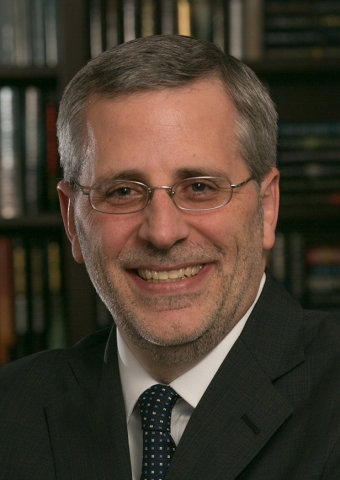Straight Talk with David Audrain, Executive Director, SISO

Twenty-eight-year industry veteran David Audrain is a who’s who of the trade show industry. Besides serving as president of Clarion Events North America and Messe Frankfurt NA, Audrain has held executive and senior positions at ConvExx, Advanstar, Hanley-Wood and Miller Freeman during the course of his storied career. Under his skilled leadership, top shows including MAGIC, SEMA Show and SURFACES achieved strong growth and success.
When he’s not leading up Exposition Development Company (ExpoDevCo), a trade show production and management company he launched in 2012 with his business partner and wife, Stephanie Everett, Audrain is executive director of SISO and a tireless advocate for the industry.
TSNN had a chance to get Audrain’s expert insights on the current state of the industry, the level of risk show organizers will have to prepare for in the “new abnormal,” and how he’s personally been navigating this strange and tumultuous time.
What is the biggest change your organization has navigated in the past year?
For SISO, the biggest change was not being able to hold our two conferences in-person so we could connect our members together in the traditional ways, and then having to create online roundtables and webinars to at least provide some opportunities for our members to share and pick up information.
For ExpoDevCo, we had to deal with a dramatic change of plans and budget for 2020. We were originally scheduled to run 11 events, a combination of several we own or are joint-venture partners in, along with other events that we manage under contract. We had to postpone and then cancel eight of those 11 scheduled events, and the three events we were able to produce in February and March were negatively impacted by COVID-19. We have been able to keep almost all of our staff in place due to some continued management fee income, as well as some access to loans and grants. Our whole staff have been working from home offices since we started the business nine years ago, so that was the only change we didn’t have to make.
How do you think the industry will be most changed going forward?
The level of risk for organizers, especially for association show organizers, will be higher than they have ever planned for in the past. This will require a higher risk tolerance and possibly higher capitalization and reserves. Our company always carried event cancellation insurance with communicable diseases coverage, but this coverage is now not available. Even when it is available again, it will exclude COVID-19 and any derivatives of it, as it previously excluded SARS, MERS, H1N1.
The inability for us to insure against these risks will create an exponential increase in potential losses to an event organizer. We are also going to find our own exhibitors and attendees starting to question their own risks of participating in our events, and it could delay commitments from [them]. Our agreements with our venues and services partners will also likely change. We will require them to have specific language protecting us against similar pandemic-type scenarios, and they will also be looking to protect themselves.
Do you see virtual as here to stay or just a stop-gap until live events return?
First of all, I hate the term “virtual.” There is nothing “virtual” about running webinars and discussions online — they are “real,” just online instead of in-person. The word virtual came from the idea of digital booths and attendees with avatars, both of which are not worth much to most people. I believe that the wider use of online content delivery will continue, but the idea of “online trade shows” is no more likely to replace in-person live events than it was a year ago. Feedback from exhibitors and attendees clearly show that they want live in-person events, not online digital ones.
What have you learned most about yourself during the pandemic?
That I am still a pretty optimistic person, though it has been tougher than I have ever expected to remain so.
About your teams?
That they are willing to step up and help in any way they are needed, and are willing to work outside their comfort zones.
What kind of self-care has been key for your mental health during these past seven months and why?
I’d like to say that I’ve taken advantage of the extra time at home not traveling to exercise and sleep more, but the truth is not that. I have been luckier than many I know who are having to work from home without extra support. My business partner is also my wife, so I am lucky in that we are working together from home just as we did before COVID-19, and even though we haven’t been traveling and I’m around twice as much as before, she still seems happy to have me around!
Where is the first place you want to travel when things open up and why?
Paris! It is my favorite city in the world and [2020 was] the first year in a long time that we were not able to visit it at least once.
Interested in being featured or recommending an industry professional for Straight Talk? Email TSNN Senior Editor Lisa Savas at lpsavas@tsnn.com.


Add new comment